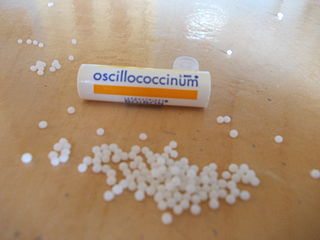Category: Politics and Regulation
Naturopathy Embraces the Four Humors
The ancient Greeks posited a system of health and disease based on the four humors: blood, phlegm, black bile and yellow bile. According to this system, health is defined as a harmony of these four humors and disease is caused by an imbalance among them. Restore the balance, and health is restored. Bleeding is a familiar example of humoral medical treatment based...
Anti-psychiatry and anti-vaccine activists shamelessly taking advantage of the Sandy Hook Elementary School shootings
Quacks detest science-based medicine (SBM) in general, but there are certain specialties that they detest more than others. For instance, you won’t find too many quacks attacking trauma surgery because even they know that when a person’s body has been on the losing end of a confrontation with a bullet or a car, no amount of laying on of hands, homeopathic nostrums,...
Another blow to the anti-vaccine movement as legislation change forces a name change
Earlier this year, Australia’s anti-vaccine lobby, the Australian Vaccination Network (AVN), took the NSW Government to the Supreme Court. In dispute was their license to fundraise which had been revoked and a public warning, issued because they refused to put a Quack Miranda on their website. The public warning was posted after the NSW government investigated their website following two complaints, one...

Disingenuous: Deconstruction of a naturopathic white paper
Science is the Concept by which we measure our reality I don’t believe in magic I don’t believe in I-ching… I just believe in science…and that reality. John Lennon. Sort of. As regular readers of the blog are aware, I am science/reality based. I think the physical and basic sciences provide an excellent understanding of reality at the level of human experience....

The CAM Docket: Boiron III, et al.
Despite denying wrongdoing, Boiron was still required to reimburse consumers for their products after losing a consumer fraud lawsuit.

The NIH funding process according to John Ioannidis: “Conformity” and “mediocrity”?
John Ioannidis published a paper that concluded that the NIH study section process prioritizes "safe" science and "conformity." Is he correct, or is this an exaggeration that uses a view of science that "brave mavericks" advance science far more rapidly than teams collaborating to make incremental progress?
What does a new drug cost? Part II: The productivity problem
A few weeks ago I reviewed Ben Goldacre’s new book, Bad Pharma, an examination of the pharmaceutical industry, and more broadly, of the way new drugs are discovered, developed and brought to market. As I have noted before, despite the very different health systems that exist around the world, we all rely on private, for-profit, pharmaceutical companies to supply drug products and...
Oregon Naturopaths v. Evidence-Based Medicine
Like every state, Oregon is struggling with the unsustainable costs of taxpayer-funded health care programs. In an attempt to tame this beast, Oregon recently established a system of coordinated care organizations, or CCOs, to (as the name suggests) coordinate medical, mental health, and dental care for residents enrolled in Oregon Health Plan, the state’s Medicaid program. The new system requires supervision of...
“Moneyball,” the 2012 election, and science- and evidence-based medicine
Regular readers of my other blog probably know that I’m into more than just science, skepticism, and promoting science-based medicine (SBM). I’m also into science fiction, computers, and baseball, not to mention politics (at least more than average). That’s why our recent election, coming as it did hot on the heels of the World Series in which my beloved Detroit Tigers utterly...
It’s time for true transparency of clinical trials data
What makes a health professional science-based? We advocate for evaluations of treatments, and treatment decisions, based on the best research methods. We compile evidence based on fair trials that minimize the risks of bias. And, importantly, we consider this evidence in the context of the plausibility of the treatment. The fact is, it’s actually not that hard to get a positive result...

